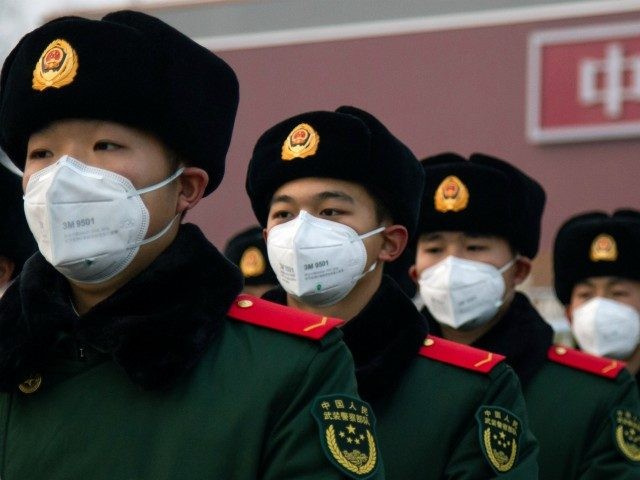The New York Times reported that six unnamed “American officials” claim online Chinese agents amplified the panic surrounding the novel coronavirus pandemic.
“The officials interviewed for this article work in six different agencies,” the paper said. “They included both career civil servants and political appointees, and some have spent many years analyzing China.” Their conclusion? China had a deliberate hand in spreading coronavirus panic in the U.S.
In March, text messages sent to Americans claimed President Donald Trump was preparing a nationwide lockdown order, leading to the National Security Council issuing a tweet to dispel those rumors: “Text message rumors of a national #quarantine are FAKE.”
The agents reportedly behind disinformation efforts allegedly “adopted some of the techniques mastered by Russia-backed trolls,” also using social media accounts to share inaccurate information produced by other subversive elements. One of the officials told the Times that “American intelligence officers are also examining whether spies in China’s diplomatic missions in the United States helped spread the fake lockdown messages.”
Others claimed “top [Chinese] officials issued directives to agencies to engage in a global disinformation campaign around the virus” and expanded their work toward the UK — spreading division during the crisis and praising the PRC’s “donation diplomacy.”
“It is part of the playbook of spreading division,” said Maine Independent Senator Angus King. “What we’ve seen is the CCP mobilizing its global messaging apparatus, which includes state media as well as Chinese diplomats, to push out selected and localized versions of the same overarching false narratives,” Lea Gabrielle, coordinator of the Global Engagement Center in the State Department, said of the Chinese Communist Party in March.
“As Beijing and Moscow move to shape the global information environment both independently and jointly through a wide range of digital tools, they have established several diplomatic channels and forums through which they can exchange best practices,” said disinformation researcher Kristine Lee, a fellow at the Center for a New American Security.
“I’d anticipate, as we have seen in recent months, that their mutual learning around these tools will migrate to increasingly cutting-edge capabilities that are difficult to detect but yield maximal payoff in eroding American influence and democratic institutions globally,” she said.

COMMENTS
Please let us know if you're having issues with commenting.